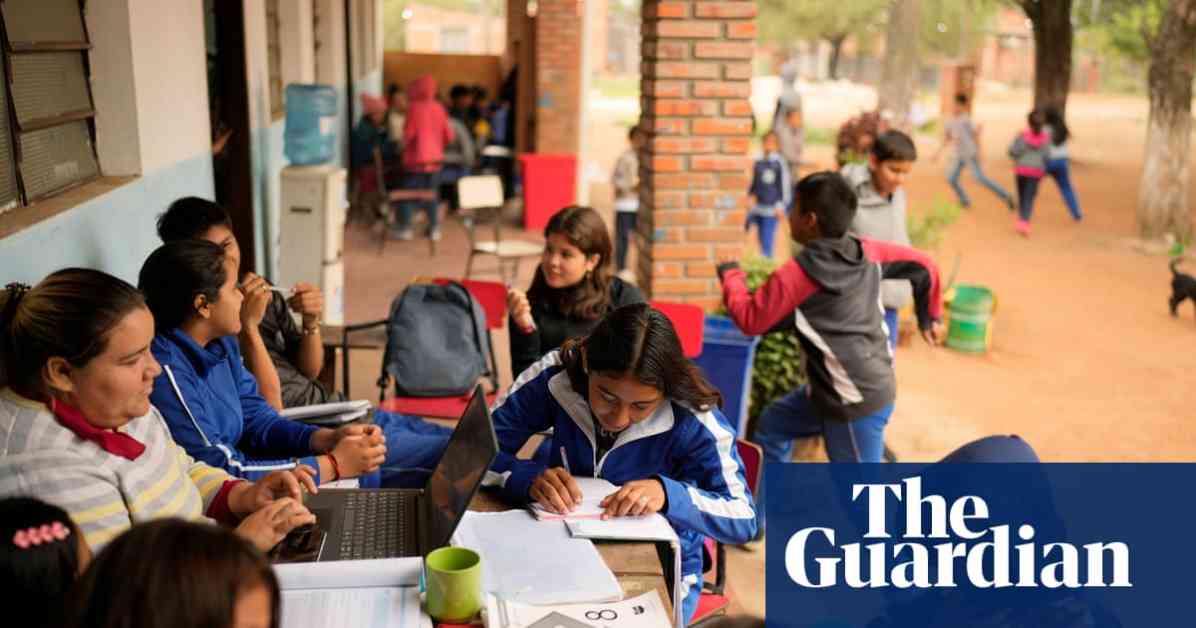Paraguay is on the brink of approving its first national sex education curriculum, a move that has sparked controversy and concern among activists, students, and parents. With the country boasting the second highest rate of teenage pregnancy in South America, the need for comprehensive sex education has never been more urgent. However, the new guidelines have raised eyebrows for their lack of focus on condom safety, LGBTQ+ inclusion, and their promotion of abstinence-only education.
**Teenage Pregnancy Crisis**
Paraguay is facing a crisis when it comes to teenage pregnancy, with government figures revealing alarming statistics. Last year alone, 10,697 adolescents aged 15-19 and 405 girls aged 10-14 gave birth in the country, which has a population of just 6.9 million. These numbers are staggering and underscore the urgent need for effective sex education programs that address the root causes of teenage pregnancy.
**Sexual Abuse and Reproductive Rights**
In addition to the high rates of teenage pregnancy, Paraguay also grapples with sexual abuse issues. In 2023, 4,084 girls and adolescents fell victim to sexual abuse, highlighting the vulnerability of young people in the country. Compounding these challenges is Paraguay’s strict abortion laws, which forbid terminations except in cases where the mother’s health is at risk. This places young rape victims in a particularly harrowing position, as they are often forced to carry pregnancies to term against their will.
**The Need for Comprehensive Sex Education**
Given the dire situation surrounding teenage pregnancy and sexual abuse in Paraguay, the introduction of a national sex education curriculum was seen as a step in the right direction. However, critics argue that the new guidelines are driven by religious fundamentalism rather than scientific evidence. The curriculum’s emphasis on abstinence-only education, its dismissal of condom efficacy, and its omission of LGBTQ+ issues have sparked outrage among advocacy groups and concerned citizens.
**Controversial Curriculum**
The proposed sex education curriculum in Paraguay has come under fire for its narrow focus and outdated beliefs. The guidelines only refer to sex between “a man and a woman,” ignore LGBTQ+ individuals entirely, and propagate harmful myths about masturbation and condom use. By promoting the idea that sexual relations are only for adults committed to each other for life, the curriculum fails to address the realities of teenage sexuality and relationships.
**Criticism from Advocacy Groups**
The National Union of Student Centres and LGBTQ+ rights NGO SomosGay have been vocal in their criticism of the new curriculum. They argue that the guidelines are regressive, repressive, and ignore the basic human rights of young people in Paraguay. By excluding LGBTQ+ individuals from the conversation and promoting abstinence-only education, the government is failing to provide young people with the information and resources they need to make informed choices about their sexual health.
**Religious Influence**
The influence of religious groups on the development of the sex education curriculum cannot be overlooked. Evangelical pastor Miguel Ortigoza, a prominent supporter of the guidelines, has emphasized the Judeo-Christian values that he believes should guide sex education in Paraguay. While Catholic and evangelical churches have expressed support for the curriculum, critics argue that this religious influence is stifling progress and perpetuating harmful stereotypes and beliefs.
**Calls for Change**
Despite the controversy surrounding the new sex education curriculum, there is a growing chorus of voices calling for change. Activists like Simón Cazal and advocacy groups like the National Union of Student Centres are pushing for a curriculum that is inclusive, evidence-based, and respectful of human rights. They argue that the current guidelines are outdated, harmful, and do a disservice to the young people of Paraguay.
**Moving Forward**
As Paraguay prepares to roll out its first national sex education curriculum, it is clear that there is still much work to be done. The government must listen to the concerns of activists, students, and parents and revise the guidelines to ensure that they are comprehensive, inclusive, and based on scientific evidence. By providing young people with accurate information about sexual health, relationships, and consent, Paraguay can empower the next generation to make informed choices and lead healthy, fulfilling lives.



